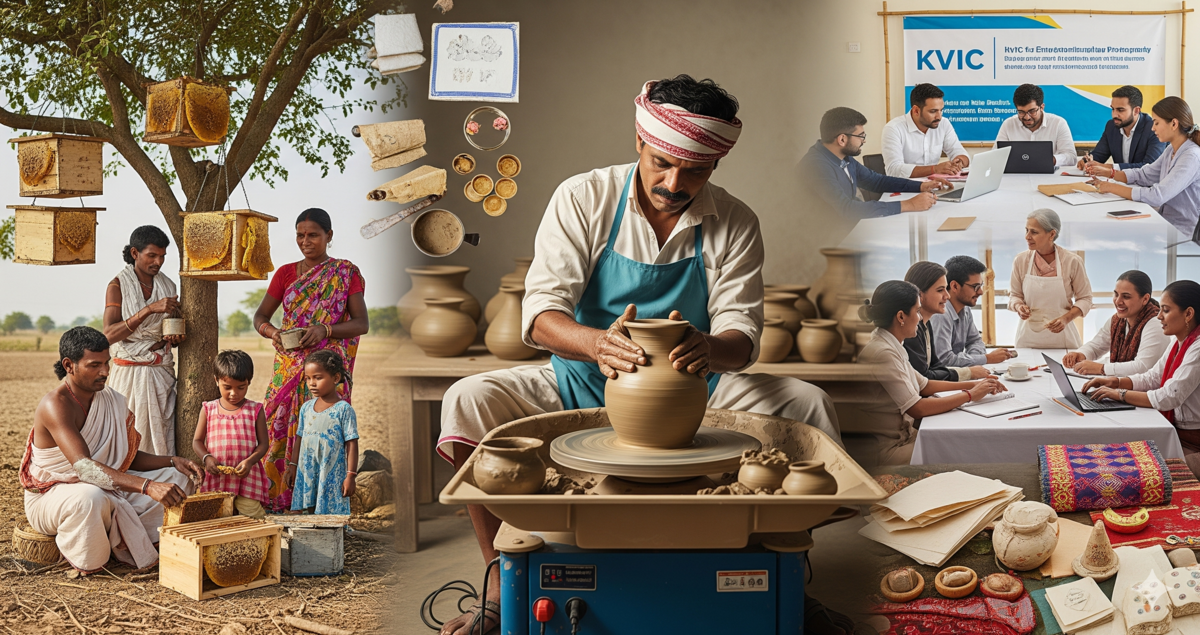Empowering Rural Artisans: KVIC Launches Initiatives for Potters, Tribal Families & Entrepreneurs in Andhra Pradesh
The Khadi and Rural Industries Commission (KVIC) is launching new programs to help skilled workers and new business owners in northern coastal Andhra Pradesh. These initiatives, funded by the central government, aim to provide modern tools, training, and a way to sell products.
One of the main focuses is pottery, a craft that is becoming popular again. To help potters, KVIC is giving out free electric pottery wheels and holding 10-day training sessions. These sessions will teach them how to make different kinds of pots. In the first phase, 120 families in the district have been chosen to take part.
Subrahmanyam, a KVIC official, said, “Pottery is a livelihood and a tradition. With modern tools, artisans can produce more with less effort and meet the high demand.”
The programs are now also open to members of Scheduled Castes (SCs) and Scheduled Tribes (STs). In the past, free tools were only given to potters. Out of the total funds, 80 potters, 20 members from SC communities, and 20 from ST communities will be helped.
Subrahmanyam explained, “This is important because it gives opportunities to communities that were not included before. It is about including everyone as much as it is about building skills.”
After their training, artisans can sell their products at KVIC exhibitions in cities like Visakhapatnam and Rajahmundry, giving them direct access to new markets.
Besides pottery, KVIC is starting a beekeeping project in Lambasingi. Four hundred honey boxes and bee colonies will be given for free to tribal families. Each family will get 10 boxes, with ₹20 lakh set aside for the project. A similar project will help 20 families in Rajam, Srikakulam district.
A KVIC official stated, “The goal is to create steady sources of income. Beekeeping is perfect for tribal families in Lambasingi, where nature supports this activity.”
The larger goal of KVIC is to make workers self-reliant. According to Subrahmanyam, “The aim is to end poverty by giving workers skills. Training will ensure good quality products, and workers can also get loans with a 35% subsidy.”
KVIC is also helping other businesses, such as rice mills, met houses, and cashew units. Officials believe that by combining traditional skills with new technology and market access, these programs can create financial stability for rural communities in the region.



